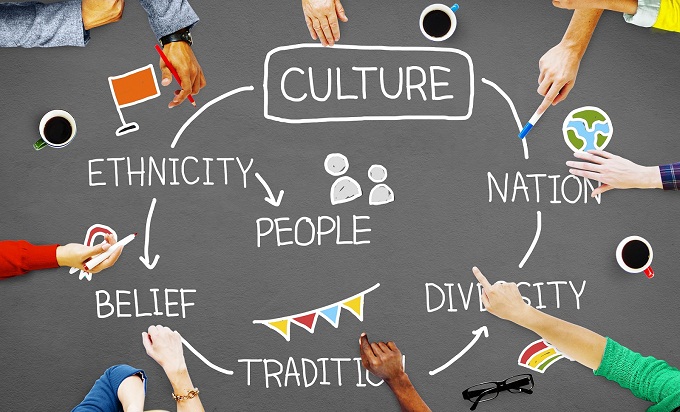World Day for Cultural Diversity for Dialogue and Development.
Common category:
World Day for Cultural Diversity for Dialogue and Developmentis celebrated on May 21st of every year by UNO.
Three-quarters of the world’s major conflicts have acultural dimension. Bridging the gap between cultures is urgent and necessaryfor peace, stability and development.
Cultural diversity is a driving force of development, notonly with respect to economic growth, but also as a means of leading a morefulfilling intellectual, emotional, moral and spiritual life.
Cultural diversity is thus an asset that is indispensablefor poverty reduction and the achievement of sustainable development.
At the same time, acceptance and recognition of culturaldiversity – in particular through innovative use of media and Information andCommunications Technologies (ICTs) – are conducive to dialogue amongcivilizations and cultures, respect and mutual understanding.
This World Day for Cultural Diversity for Dialogue and Developmentprovides us with an opportunity to deepen our understanding of the values ofcultural diversity
Support sustainable systems of governance for culture
Achieve a balanced flow of cultural goods and services andincrease mobility of artists and cultural professionals
Integrate culture in sustainable development frameworks
Promote human rights and fundamental freedoms
Intercultural Dialogue
Equitable exchange and dialogue among civilizations,cultures and peoples, based on mutual understanding and respect and the equaldignity of all cultures is the essential prerequisite for constructing socialcohesion, reconciliation among peoples and peace among nations.
This action is part of the global framework of an Allianceof Civilizations launched by the United Nations. More specifically, within thelarger framework of intercultural dialogue, which also encompassesinterreligious dialogue, special focus is placed on a series of good practicesto encourage cultural pluralism at the local, regional and national level aswell as regional and sub-regional initiatives aimed at discouraging allexpressions of extremism and fanaticism and highlighting values and principlesthat bring people together.
Interreligious Dialogue
UNESCO’s Inter religious Dialogue programme, an essentialcomponent of Intercultural Dialogue, aims to promote dialogue among differentreligions, spiritual and humanistic traditions in a world where conflicts areincreasingly associated with religious belonging.
It stresses the reciprocal interactions and influencesbetween, on the one hand, religions, spiritual and humanistic traditions, andon the other, the need to promote understanding between them in order tochallenge ignorance and prejudices and foster mutual respect.
Learning the art of dialogue is both a personal and socialprocess. Developing one’s skills and capacity for dialogue implies awillingness to be open while retaining one’s critical judgment. Dialogueconcerns us all: from decision-makers and leaders to individuals within eachcommunity. Alongside relevant international conferences to raise awareness,UNESCO strives to promote grass-root activities, particularly in sensitivegeo-strategical areas that reach target-populations such as women, youth andmarginalized populations.
Culture and Development
Placing culture at the heart of development policyconstitutes an essential investment in the world's future and a pre-conditionto successful globalization processes that take into account the principles ofcultural diversity.
Development is inseparable from culture. In this regard, themajor challenge is to convince political decision-makers and local, nationaland international social actors to integrating the principles of culturaldiversity and the values of cultural pluralism into all public policies,mechanisms and practices, particularly through public/private partnerships.
The aim is, on the one hand, to incorporate culture into alldevelopment policies, be they related to education, science, communication,health, environment or cultural tourism and, on the other hand, to support thedevelopment of the cultural sector through creative industries. By contributingin this way to poverty alleviation, culture offers important benefits in termsof social cohesion.
Post Your Comments for this Article
Related News
-
1.5 million jobs in rural India within one year
2017-06-16 11:45:48
-
Mumbai University offers new courses
2017-06-16 10:58:44
-
Mega Education Conclave In Srinagar
2017-05-22 09:53:23
-
Tamil Nadu SSLC Results 2017
2017-05-19 10:11:46



